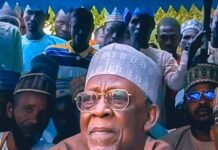In the past years, there has been an unprecedented and significant increase in the number of youths and women across the world as there are no fewer than 1.3 billion youths and women between the ages of 12 and 35 living around the world with over 80% in developing countries (National Youth Policy, 2009) and the number of youths and women within this age bracket is expected to increase to almost 2 billion by 2050 (Population Reference Bureau, 2012).
There are strong and credible indications that Sub-Saharan Africa (SSA), where Nigeria belongs, has the most youthful and youngest populations in the world with an estimated 200 million young people between the ages of 12 and 24 years (Ezeah, 2012).
Specifically, in Nigeria, youth and women constitute almost 60% of the total population out of more than 130 million people as at 2001(the National Youth Development Policy, 2001), the national population increased to 140 million in 2006 and is projected to rise to 150million in 2013 (NPC, 2006).
Based on this, it is believed that Africa and indeed Nigeria, has one of the most treasured and most enviable assets in the world. The question is: does the Nigerian government recognise this fact? To what extent has the Nigerian government tapped the potential of this young population to achieve its development agenda considering the fact that youths women are stakeholders in the development agenda of any nation?
Prior to 1960 when Nigeria got her independence from the British, the Nigerian youths and women had been the prime agents of democracy and the most affected by such democracies.
This is because the youth and women constitute an overwhelming majority of the working/active population of Nigeria. The cognition of the youth in development may have led to the establishment of the National Youth Policy to cater to the yearnings and aspirations of youth in Nigeria.
The establishment of the National Youth Policy became important for improved relevance and participation of the youth in political and economic development.
The youths, therefore, are resourceful men and women who engage in social enterprises that require physical strength, mental and intellectual capacities. Thus, no nation aspiring to national greatness can afford to ignore its youths and allow them to constitute a major social problem (Chukuezi, 2009).
However, the choice between success and failure rests on Nigeria’s ability to harness the power of its greatest asset: not oil, but youth & Women.
Although the effective use of Nigeria’s vast oil resources is an important part of the story, the oil industry alone will not be able to effectively harness. Nigeria’s rapidly increasing numbers of young people while a global Scarcity of young adults will accelerate in the coming decades, Nigeria will Remain a young country throughout most of the twenty-first century (Next Generation Nigeria Project, 2009:12).
Sociologically, the “youth” category is a transition period which begins from childhood, adolescence, early adulthood to the aged. Every transition comes with enormous challenges and social responsibilities. There are certain socio-cultural expectations for each stage of life. A youth, for instance, is expected to conform to social norms better than a child.
Sociologically, being youth signifies social maturity and competence moderated by the values and expectations of the society. Being a youth is the transition from “play stage” to “game stage” and eventually to the “generalized other”; such transition is important in the development of self (Schaefer, 2006). The play stage is the childhood stage followed by the game stage when they are mature to take on some personal roles guided by societal norms. The youth are expected to be competent in community roles at the macro-level (which is the generalised stage).
One of the most common characteristics of rural communities in Nigeria is a communal life where the basic residential units are compounds characterised by extended family structure. Rural communities are also patriarchal in nature where men are seen as the heads of the households and are expected to be responsible not only to members of their families but the entire community.
The family head is known as the “breadwinner” who is not only expected to provide financial but including moral and spiritual responsibilities to members of his family. In such a community, social status is a function of the age group one belongs, which is accompanied by some cultural and expectations.
Within the legal domain, age has been used to differentiate between crime and delinquency. The age of responsibility is vital in a legal argument in this regard (Cox and Wade, 1998; Alemika and Chukwuma, 2001). Such determination of the age of responsibility has political connotations. This may explain why certain crimes are tried in juvenile rather than conventional courts. It is the duty of every government to determine the age of responsibility and age category that will be regarded as a youth”.
Most societies rely on gerontological indicator (i.e., specific age range) to delimit demographic profile of the youth. While some will agree that age 15-24 (Seiders, 1999) are youth, others may extend it up to 35 or 40. This paper adopts the age range of 18 – 35 as a youth as defined by the Nigeria Youth Policy (FGN, 2001; Omorongbe & Orobor, 2007).
Thus, the youth constitute over 50 million Nigerian population (NPC, 2006). This demographic strength is enough to instigate political democracy to determine the direction of policies and socio-political discourse and outcomes of democratic projects in Nigeria.
Apart from voting and effecting a democracy of public officials, there are other levels of political democracy.
Political democracy is a systematic transformation in a political setting. There are various dimensions to the notion of political democracy. Although political instability has been likened to political democracy, it is important to note that democracy is also embedded in political stability.
Every political order requires dynamism. The dynamic aspect of the polity may be positive or negative or described as advancement or regression. Whichever way democracy follows, it is imperative to understand the levels of political democracy.
The history of Nigeria confirms the assertion that young people are the custodians of democracy.
Umar and Danjuma (2008:4) observed that the Nigerian youths have been playing important roles in the country’s political space in the colonial era (i.e. before 1960). This goes back to the period when the Nigerian Youth Movement (NYM) was founded in 1936 by J. C. Vaughau, H. O. Davies, Kofo Abayomi and others.
Indeed, NYM was the first political party with a national outlook (Nnoli, 1980; Mohammed and Abba, 2003) and with a major aim to foster political advancement and enhance the socio-economic well-being of Nigerians.
This starting point, championed by the youth, paved way for the emergence of other political parties such as the Nigerian National Democratic Party was Nigeria’s first political party. Formed in 1923 by Herbert Macaulay to take advantage of the new Clifford constitution, which succeeded 1914, National Council of Nigeria and Cameroun (NCNC) in 1944, Action Group (AG) in 1950; National Element Progressive Union (NEPU) in 1950; Northern People’s Congress (NPC) in 1950.
It is noteworthy that the vibrant figures in all the parties were mostly youths who later became the nationalists that fought for independence. Most of the pre-independence parties were previously Youth Movements (Umar and Danjuma, 2008).
The youths such as Anthony Enahoro, Nnamdi Azikwe, Obafemi Awolowo, Tafawa Balewa, Ahmadu Bello were the pioneers of Nigeria independence. The youths in colonial-era were perceived as heroes of the anti-colonial struggle.
As founders of the NYM, the Zikist Movement, the West African Students’ Union (WASU), the youth popularized the anti-imperialist consciousness (Onoge, 2004).
For instance, late Anthony Enahoro (1923 – 2010) was less than 30 years old when he moved the abortive motion for Nigeria’s independence in 1953and when he later served as Federal Commissioner of Information.
It was evident that the youths were the first to yield to the call of western education in the colonial era. This is why they were the first to stand against colonial oppressions and participate in colonial politics with the aim of setting the roadmap for self-rule.
In the immediate post-independence era, the youth and women played significant roles in national development. This was especially the youths who took over the government from the colonialists. This period was remarkable in the history of this country because of groundbreaking development projects undertaken and relative stability.
In the post-colonial era, the youth especially, the students have been at the forefront of radical political democracy. For instance, Major Chukwuma Kaduna Nzeogwu (1937 – 1967) [At the age of 29]) Led the first coup d’état in Nigeria (January 15, 1966). In the early history of the post-independent era, the youth effected a macro-level democracy from democratic to military rule.
At a critical period in the history of Nigeria, a youth (General Yakubu Gowon born in 1934) was the head of state that prevented eastern region ‘secession through a three-year protracted civil war (1967-1970).
This also shows that the youth believe in the oneness of the country. Looking back at the civil-war era, the commendable strives of former president Obasanjo (born in 1937) who was then youth cannot be overlooked.
The “youthful” good leadership of Gen. Murtala (1938 – 1976) is still part of the great history of Nigeria.
However, the Second Republic (1979 – 1984) marked the beginning of the decline in youth participation in Nigerian politics (Umar and Danjuma, 2008; Bolaji, 2008). The Second Republic was led by politicians (who played active roles in the First Republic) but could no longer be regarded as youths. It was observed that the roles of the youth were relegated to the creation of “youth wings” in political parties.
In this regard, Umar and Danjuma (2006:6) observed that:
…as the country political process especially electoral contest became progressively mired in heightened conflict and chaos, the role of the youth also took on a new dimension, with political parties recruiting and maintaining youth political thugs…
In Nigeria, there is a substantive population of youths who are energetic, dynamic and innovative. The youth have both a right and a responsibility to help shape the future they would inherit (Okey, 2007).
The active participation of youths in politics is, therefore, imperative for the success of the Nigerian democratic project. In order to effect political democracy at any level, it is important for the over 50 million Nigerian youths to vote and be voted for.
In a democracy, majority rules, hence viewing the youth as a political entity, the youth needs to determine leadership at various levels of government.
More so, in view of the fact that the country is in need of political transformation that would enhance the target of Vision 20-2020, there is a need for credible leadership. Before granting a mandate to any candidate, evaluation of policy options is critical in order to make an appropriate choice.
At this moment, Nigeria needs leaders that would deliver people’s expectations and enhance the potentials of the youth. Young Nigerians cannot continue to wallow in hunger and destitution created by corrupt leaders.
Therefore, ensuring responsible governance would mark the beginning for the reversal of the burden of socio-political problems in Nigeria and interestingly, the youth has significant roles in changing the direction of governance.
With the challenges of a global pandemic of covid 19 which has exposed the weakness of Nigerian government in the health care system and support to the coshing the effect of the lockdown that accumulate to the ENDSARS that has exposed the political injustice against the youth.
The socio-economic and political empowerment of the youth will reduce their instrumental deployment to perpetuate violence and other illicit acts. In the past, electoral violence has been reported to be a major hindrance to free and fair elections in Nigeria (Ashiru, 2008).
There is a need to reverse such a trend to save the democratic project in the country. The youths must avoid any ‘youth wing’ that is organised to attack opponents and undermine democratic values (Onuoha, 2001). The politics of ‘machetes, guns and blood’ should be an issue of the past in order to pave way for responsive and responsible governance.
Finally, participation in all levels of the political system is imperative to enhance the developmental potential of Nigeria Youth but not just peripheral participation, but visible and functional engagement within the political space.
The Nigerian youths want to be the leaders of today, not tomorrow, to channel the course of development. The human resource, such as youth population, constitutes vital assets for the achievement of developmental goals in Nigeria.
This development was partly responsible for the escalation of the youth political violence, which contributed to the demise of the Second Republic. After the collapse of the Second Republic, some youths were still visible in the struggle against military oppression and subjugation, especially during the Babangida (1985 – 1993) and Abacha era (1993 – 1998) while others became instruments in the hands of the political class to propagate self-interests.
Although many youths continued to contribute tithe development of Nigeria in both private and public sectors, the Structural Adjustment Program (SAP) of the 1980s adversely hit many of the youths.
Since then youths became easily manipulated with monetary incentives to pursue self-interest of the certain political class as evident in “Youth Earnestly Ask for Abacha” (YEAA) in 1998, a movement advocating for tenure elongation of the military dictator.
Also, since 1999, the youth have been used to perpetrate violence during political campaigns and elections (Ogundiya & Baba, 2005; John et al. 2007). Involvement in such nefarious activities is due to loss of interest in the democratic/political agenda of Nigeria (Nweke, 2005) which itself a result of the political system fails to deliver goods to the citizenry.
The most disturbing threat to democratic stability is perpetuated by the youth. This is because of youth involvement in political violence, especially electoral violence. The involvement of youth in the election crisis in 1965 and1983, to a large extent, caused the demise of the first and second republics.
Therefore, the involvement of youths in election-related crisis has, in the past, stalled the process of democratic consolidation in the country.
Although this indicates political manipulation by some political elites who intend towing election at all costs and by all means, the youths are guilty of Submissiveness to such gimmick, which is detrimental to the progress of Nigeria.
Youth restiveness is now a fundamental challenge especially since1999. There are now numerous youth associations that are employed by the political class to perpetuate violence in all regions of Nigeria (John et al. 2007).
The “area boys” of the southwest, the militants of south-south, “kalahieboys or agbero” of the south-east, “Yan Daba” or “Yan Kalare” or “sara-suka” in the north are examples of the frightening associational life among youths. Expectedly, the rapid growth of youth unable to find gainful employment may partly explain the series of unrest in Nigeria.
Therefore, in the context of Nigeria’s historical experience, youth and students have rendered valuable contributions to the struggle for liberation and national development (Okey, 2007).
In the current trends of youth involvement in politics, there are mixed reservations.
This is why there is a need to examine what actually went wrong such that a majority of youths are now involved in illicit political acts.
Follow the Neptune Prime channel on WhatsApp:
Do you have breaking news, interview request, opinion, suggestion, or want your event covered? Email us at neptuneprime2233@gmail.com





